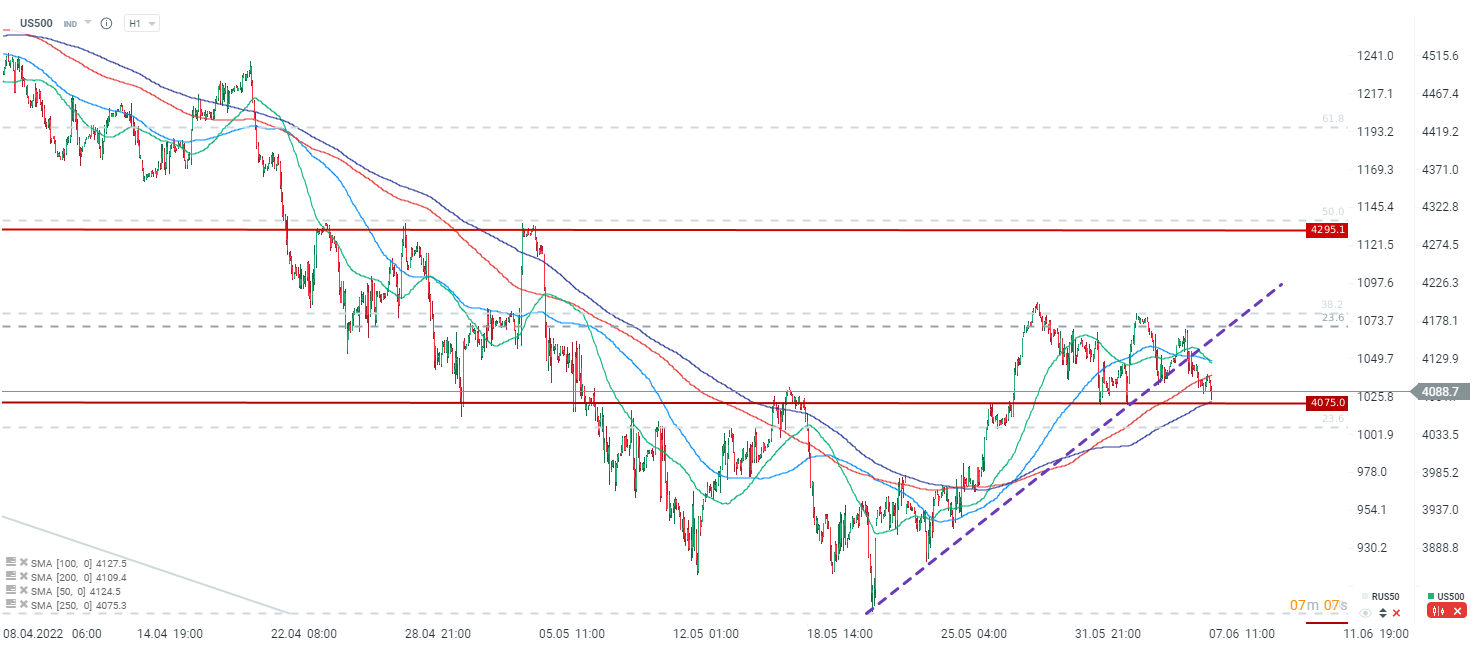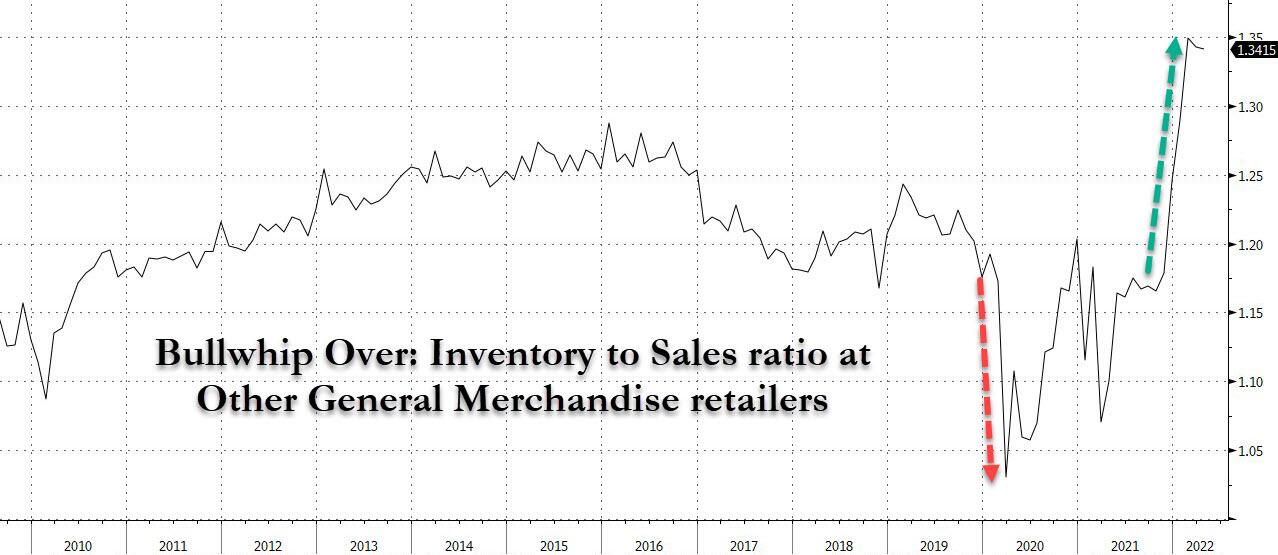The season of cutting profit expectations on Wall Street is beginning. Just recently, a lot of uncertainty has been shown by Walmart, while smaller retail chains have shown a positive outlook. On the other hand, today Target (TGT.US) cut its margin outlook for the next few quarters, citing major problems with excess inventory and transportation costs. In response to this news, the company's stock is losing up to 8% in pre-market trading. Walmart shares are off about 4%.
Target is pointing to the so-called bullwhip effect. Previously, very high demand led to a significant increase in orders at every level of the supply chain. Now, with weakening demand, the bullwhip effect increases the further you go from the consumer to the first supplier. As a result, we are seeing a massive increase in retailers' inventories relative to sales. Despite expectations that retailers are doing quite well in the downturn, a significant reduction in expected margins could take its toll on corporate earnings.

The S&P 500 has pulled back sharply but is holding key short-term support. On the other hand, the short-term uptrend line was broken yesterday. Source: xStation5

Rising inventories among retailers may lead to a significant reduction in margins. Source: Bloomberg, ZeroHedge

Daily summary: Weak US data drags markets down, precious metals under pressure again!

US Open: Wall Street rises despite weak retail sales

US2000 near record levels 🗽 What does NFIB data show?

Chart of the day 🗽 US100 rebound continues as US earnings season delivers


